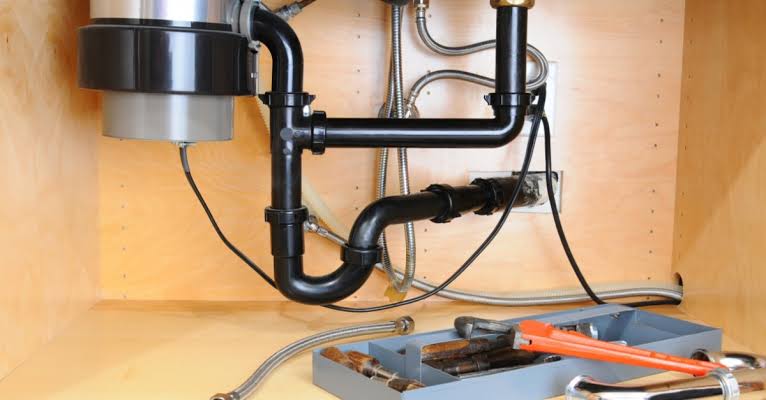Garbage disposals can wreak havoc on your plumbing drain lines when they’re used improperly. Learn about the dos and don’ts of garbage disposal use to avoid clogs, impact damage, and other drainage issues.
Flushing your disposal with cold water after each use helps fats solidify and reduce the risk of a disposal clog. It also helps sanitize the appliance and eliminate odors.
Clogs
Garbage disposals can make cleaning up your kitchen a breeze, but they can also contribute to drain and sewer line clogs. Putting the wrong types of food into your disposal or using too much at one time can jam the blades and cause water to overflow the unit. Pouring grease down your disposal or drain can also clog pipes.
Many people think that they can put any type of food in their disposal, but this is not true. Some foods like coffee grounds, vegetable peels, corn husks, and rice can contribute to clogs. Non-food items such as silverware, paper, foil, plastic, a washcloth, a sponge, flower plant clippings, and a metal hanger should never go down the disposal.
If your garbage disposal is clogged, first try plunging it. If this doesn’t work, remove the trap by placing a bucket underneath and using channel-type pliers to loosen the slip-nut fittings on the trap and then pulling it away. Many people attempt to fix their drains which are blocked but a professional plumber can clear a blocked drain in Melbourne without causing further damage.
Backflow
A garbage disposal can put a strain on a home’s plumbing and drain lines. If not properly used, these machines can wreak havoc on kitchen pipes and drains, causing blockages, leaks and other issues that require professional repair.
Many people believe that a disposal works like a blender with spinning blades to chop up and break down food scraps. In fact, disposals don’t have any blades but instead use blunt impellers to grind and break down food.
Hard foods like fruit pits, egg shells and stringy foods (like potato peelings or celery or carrot shavings) can damage the disposal or become lodged between the impellers, causing costly and messy blockages and drain repairs. Grease should also be avoided as it will solidify in the pipes and cause major clogs. Instead, wipe greasy pans and platters with paper towels before washing them. This helps eliminate grease and other fats that are commonly found in clogged drains and septic systems.
Damage
When non-food wastes are put through a disposal, it can lead to severe blockages and other plumbing issues. Knowing what should and shouldn’t go into your garbage disposal can greatly reduce the likelihood of these problems affecting your home. Grease, oils and fats can congest your pipes and disposal. They can also cause bad odors and lead to clogs.
Starchy foods like pasta, rice, oats and potato peelings can soak up water and expand, which causes clogs. Stringy veggies like celery, artichokes and corn husks can wrap around the blades of your disposal and get stuck in the drain pipe.
Fish and chicken bones, eggshells, nuts, seeds and fruit pits can be beneficial to your disposal when ground up because they create a scouring action within the grinding chamber that helps clean the walls of the unit. It’s important to always rinse the unit after using it to prevent corrosion and rusting of the mechanical parts.
Noise
Garbage disposals can clog the kitchen plumbing pipes, and this obstructs water flow. This can lead to sewage backups, which are hazardous to health. They also can cause water damage to your home’s fixtures and the plumbing system overall.
If you notice a humming sound when you turn on your disposal, it is likely due to large food particles that are trapped somewhere in the disposal or the drain pipe. Running plenty of cold water when operating the disposal helps flush food particles through the unit and down the drain pipe.
You should avoid putting certain foods in the disposal, including bones and fibrous materials like celery stalks or corn husks. These can entangle with the blades and lead to malfunctions. Additionally, you should never pour grease down your disposal. Grease solidifies in the pipes, restricts water flow, and can clog your garbage disposal and kitchen plumbing pipes. This can be a major plumbing problem and expensive to fix.
Join Myflixer‘s digital revolution and navigate the realms of entertainment, tech, business, lifestyle, and fashion. Click through the pixels of discovery and immerse yourself in a world of endless fascination!

